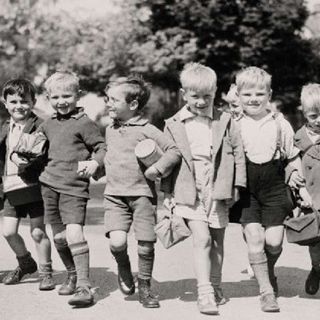Studies have shown that children who witness their parents fight regularly and destructively often struggle with their emotions and mental health later in life. But one mitigating factor could be how close they are with their sibling, suggests a new study published in Child Development.
A team of researchers from the University of Rochester, University of Nebraska-Lincoln, and University of Notre Dame found that adolescents with no or weak sibling relationships, who witnessed high levels of animosity between parents, displayed greater distress about parental conflict than teens with strong sibling relationships. The degree of distress kids expressed predicted the degree of mental health struggles they experienced one year later.
“Children may be using their siblings as sources of protection and emotional support — that is, as attachment figures,” says lead author Patrick Davies, a professor of psychology at the University of Rochester. However, he adds, “if this were the primary reason for the protective effects, one might expect that younger siblings would benefit significantly more from being able to access support from an older sibling who is more capable as serving as a source of support. But this wasn’t the case.”
Researchers say this suggests that it’s less about attachment, and more about distraction: Siblings fulfill a similar function as peers, and introduce each other to different external environments and relationships that can distract from conflicts at home.
“Additionally, siblings may develop friendship bonds that involve shared warmth, disclosure about concerns, and support and corrective feedback — such as becoming a sounding board — for their perceptions about family life,” adds Davies.
The study defined a good sibling relationship as one that encompasses warmth, closeness and problem solving, and shows low levels of antagonism, conflict and detachment.
The study involved 236 urban and suburban 12-year-olds in the US. Their families were studied annually for three years, via observation, surveys and semi-structured interviews with the mothers about the children’s relationships with their closest-aged sibling. The researchers stress the study’s limitations — aside from its small size, participants were racially and economically homogeneous, making its results difficult to extrapolate to the broader population. Still, it’s an interesting and hopeful data point for kids growing up in high-conflict homes. The researchers say the next step in this line of research would be to explore what exactly it is that siblings provide, in high conflict homes, that lends emotional and mental protection.




